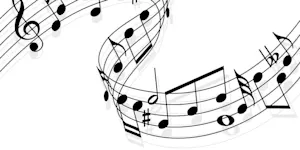What Makes This Word Tick
"Blatant" is the kind of word that doesn’t shy away from the spotlight. Picture that friend who firmly voices their opinion at dinner parties — unreserved and unapologetic. It's a bold adjective used to describe something that's glaringly obvious in a way that almost demands attention.
If Blatant Were a Person…
Imagine someone who wears vibrant colors at a retreat where everyone else is in muted tones. They aren’t afraid to say what everyone else is thinking, as if their volume dial is permanently stuck on high. This person would likely enjoy basking in the attention, knowing they stand out in a crowd.
How This Word Has Changed Over Time
Originally, "blatant" was coined in the late 16th century with a negative connotation, often associated with something offensive or loud. Over time, however, its usage has evolved to describe anything that's obviously and offensively conspicuous, shedding some of the original melodrama.
Old Sayings and Proverbs That Use Blatant
While "blatant" isn't a star in traditional proverbs, it resonates with the sentiment "as plain as the nose on your face." In essence, it's the no-nonsense representative in the proverb family, pointing out what’s impossible to ignore.
Surprising Facts About Blatant
Did you know that the word "blatant" was popularized by Edmund Spenser in "The Faerie Queene" where he described a hideous monster? Interestingly, it draws from the Latin “blatire,” which means to babble, subtly implying noise without substance.
Out and About With This Word
When you're wandering through cityscapes filled with neon signs or encountering a sales pitch that screams "Buy now or miss out!" — that's "blatant" in action. It doesn’t skulk in shadows; it's front and center, demanding your gaze.
Pop Culture Moments Where Blatant Was Used
From sitcoms that poke fun at shameless advertising to reality TV's dramatic "confessionals," "blatant" finds its rhythm in moments that thrive on over-the-top expression. Remember that jaw-dropper plot twist? Yep, that's pure, blatant storytelling at its finest.
The Word in Literature
"Blatant" fits seamlessly between the pages of a mystery novel where the culprit is glaringly obvious to everyone except the bumbling detective. It's a favorite in genres that play with irony, helping underscore situations that feel embarrassingly evident.
Moments in History with Blatant
During the Watergate scandal, the blatant misuse of power was akin to a siren blaring in the dead of night. These moments remind us how audacious actions often become historical benchmarks for future generations to ponder.
This Word Around the World
In Spanish, you might use "evidente" or "flagrante" for something blatant. Meanwhile, in French, it transforms into "flagrant" — similar to the English "flagrant violation." Across cultures, it captures the essence of unmistakable clarity.
Where Does It Come From?
The word "blatant" comes from the Latin "blatire," meaning to babble. Its journey from describing noise to the more visual sense of obviousness shows a fascinating evolution from sound to spectacle.
How People Misuse This Word
People sometimes misuse “blatant” when they mean "obvious." While an obvious misunderstanding can be simple, a blatant one carries a more shameless or offensive weight — like laughing during a quiet symphony performance.
Words It’s Often Confused With
Obvious: While both mean easy to see or comprehend, "blatant" implies an in-your-face annoyance.
Flagrant: Also suggests glaringly offensive but often implies a violation or error done openly and brazenly.
Overt: Both describe clarity, yet "overt" is about clear visibility without negative judgment.
Additional Synonyms and Antonyms
Synonyms for "blatant" include unapologetic, glaring, or obtrusive, while antonyms might be subtle, discreet, or understated.
Want to Try It Out in a Sentence?
Even with the curtains drawn, the bright neon lights made their blatant presence known, lighting up the room like a forgotten festival lantern.
















